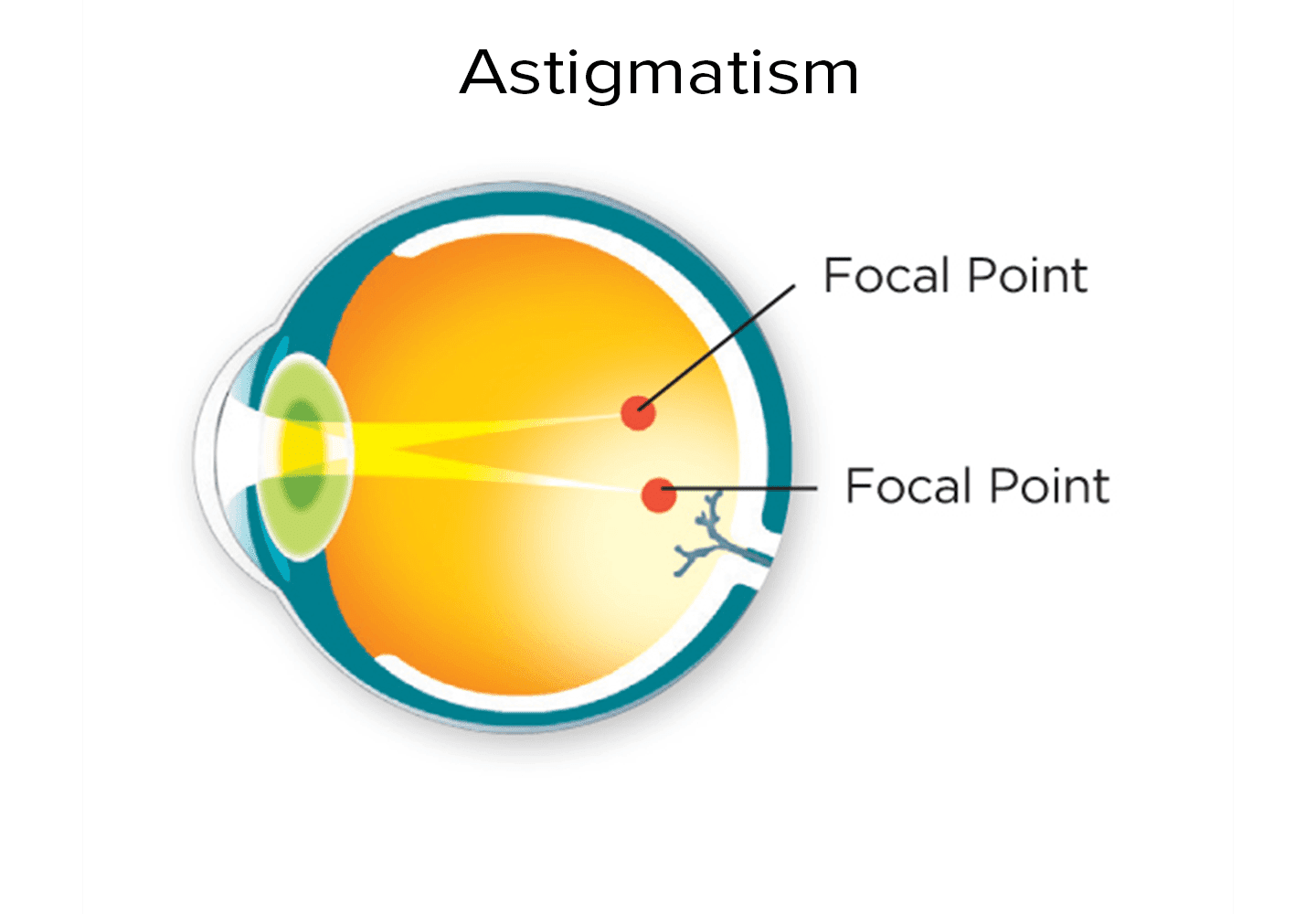Astigmatism
Astigmatism is a common vision condition that affects many people. It occurs when the cornea, which is the clear front surface of the eye, is irregularly shaped. This can cause blurry or distorted vision at any distance. In this patient education page, we will discuss what astigmatism is, its causes, symptoms, and treatment options.

What is Astigmatism?
Astigmatism is a vision condition that occurs when the cornea or lens of the eye is irregularly shaped. Normally, the cornea is a smooth, round shape, like a ball. With astigmatism, the cornea is more oval-shaped, like a football, which causes light to be focused unevenly onto the retina at the back of the eye. This results in blurry or distorted vision at any distance.
What are the causes of Astigmatism?
Astigmatism can be caused by a variety of factors, including genetics, eye injuries, or eye diseases. It can also develop as a result of the normal aging process. In some cases, astigmatism may be present at birth.
Symptoms of Astigmatism can include:
- Blurry or distorted vision at any distance
- Difficulty seeing fine details
- Eye strain or fatigue
- Headaches
- Squinting
How is Astigmatism diagnosed?
Astigmatism can be diagnosed during a comprehensive eye exam. Your eye doctor will perform a series of tests to measure the shape of your cornea and the way that light is focused onto the retina. These tests may include a visual acuity test, a refraction test, and a keratometry test.
What are the treatment options for astigmatism?
The most common treatment for astigmatism is the use of corrective lenses, such as glasses or contact lenses. These lenses help to compensate for the irregular shape of the cornea and improve vision. Another option for treating astigmatism is refractive surgery, such as LASIK or PRK, which uses a laser to reshape the cornea and correct vision. In some cases, toric intraocular lenses can also be implanted during cataract surgery to correct astigmatism.
Conclusion:
Astigmatism is a common vision condition that can cause blurry or distorted vision at any distance. It can be caused by genetics, eye injuries, eye diseases, or the normal aging process. Treatment options include corrective lenses, refractive surgery, and toric intraocular lenses. If you are experiencing symptoms of astigmatism, talk to your eye doctor to see what treatment options are best for you.
